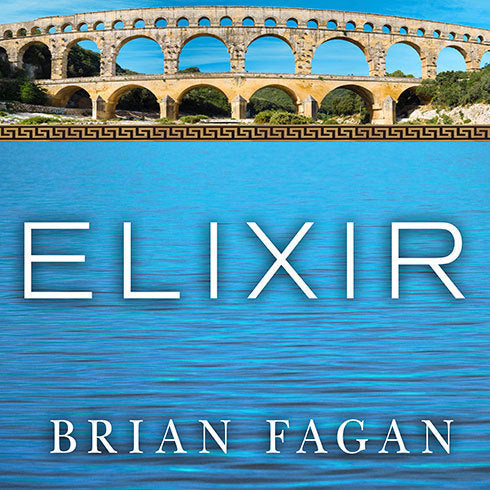
Elixir
Read by
James Langton
Release:
06/01/2011
Release:
06/01/2011
Release:
06/01/2011
Release:
06/01/2011
Runtime:
13h 17m
Runtime:
13h 17m
Runtime:
13h 17m
Unabridged
Quantity:
Supplying intriguing historical background, Fagan well informs those pondering freshwater's role in contemporary environmental problems.
Booklist
Elixir spans five thousand years, from the beginnings of civilization to the parched American Sun Belt of today. It is a story of human endeavor: our present-day interaction with this most essential resource has deep roots in the remote past, and every human culture has been shaped by its relationship to water.
For the earliest hunter-gatherers, knowing where to find water was a matter of life and death; the "songlines" of Australia's Aborigines define the whole landscape as a map of sacred water sources. In many agricultural societies, from Africa to the rice fields of Bali, a communal "water philosophy" surrounds the precious resource with social traditions that preserve fair access for people upstream and down.
The sweeping narrative moves from the Greeks and Romans, whose mighty acqueducts still water modern cities, to China, where emperors marshaled armies of laborers in a centuries-long struggle, still ongoing today, to tame the country's powerful rivers. Medieval Europe and then the Industrial Revolution brought ingenious new solutions to water management—but, for the first time, turned water into a commodity to be bought, sold, and exploited rather than a natural force to be worshiped and husbanded. By the twentieth century, technology allowed the American desert to sparkle with swimming pools and lush golf courses—with little regard for sustainability.
With his customary elegance and peerless scholarship, Brian Fagan illustrates that the past teaches us that technologies for solving one or another water problem are not enough. From a practical standpoint, we still live at the mercy of the natural world. To solve the water crises of the future we may need to adapt the water ethos of our ancestors.
For the earliest hunter-gatherers, knowing where to find water was a matter of life and death; the "songlines" of Australia's Aborigines define the whole landscape as a map of sacred water sources. In many agricultural societies, from Africa to the rice fields of Bali, a communal "water philosophy" surrounds the precious resource with social traditions that preserve fair access for people upstream and down.
The sweeping narrative moves from the Greeks and Romans, whose mighty acqueducts still water modern cities, to China, where emperors marshaled armies of laborers in a centuries-long struggle, still ongoing today, to tame the country's powerful rivers. Medieval Europe and then the Industrial Revolution brought ingenious new solutions to water management—but, for the first time, turned water into a commodity to be bought, sold, and exploited rather than a natural force to be worshiped and husbanded. By the twentieth century, technology allowed the American desert to sparkle with swimming pools and lush golf courses—with little regard for sustainability.
With his customary elegance and peerless scholarship, Brian Fagan illustrates that the past teaches us that technologies for solving one or another water problem are not enough. From a practical standpoint, we still live at the mercy of the natural world. To solve the water crises of the future we may need to adapt the water ethos of our ancestors.
Release:
2011-06-01
2011-06-01
2011-06-01
2011-06-01
Runtime:
Runtime:
Runtime:
Runtime:
13h 17m
13h 17m
13h 17m
13h 17m
Format:
audio
audio
audio
audio
Weight:
0.98 lb
0.0 lb
0.98 lb
0.5 lb
Language:
English
ISBN:
9781452600390
9781452670393
9798200099221
9798200099238
Publisher:
Tantor
Tantor
Tantor
Tantor
Praise
